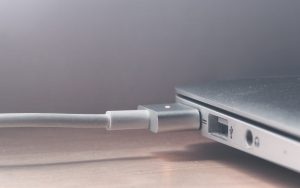Knowing how to properly use your computer is key to your productivity and its longevity. You should never take for granted basic best practices. Here are three basic computer guidelines that are easy to overlook, yet they can be critical to performance and security.
Don’t Just Blindly Click

We get it: It’s unreasonable to expect someone to read every word of software agreements and notices. That said, at
least skim things over to get an idea of what you’re agreeing to. It might be the case that some third-party software is trying to pull a fast one on you. You might be agreeing to opt into all kinds of lists, or installing shady browser add-on’s, or even loading infected files onto your machine unbeknownst to you.
Those “OK” buttons are temptingly simple. Resist the urge and take the few extra seconds to make sure you know what you’re approving!
Don’t Plug Your Computer Equipment Directly Into An Outlet
Although it is guaranteed that you plug all kinds of electronics right into your outlets, you really should not do this with computer equipment. The issue here is that electricity that comes directly from those outlets can fluctuate. This is why, for example, buildings’ lights might randomly dimmer and then brighten from time to time. While those light bulbs can handle the changes, your computer really cannot. It might lead to irreparable damages.

Instead of doing that, plug your equipment into a surge protector. A simple power strip that you can pick up at any hardware or multi-purpose store is worth the few extra bucks. Even though a cheap power strip is better than none at all, it is not likely to offer the kind of protection that a more heavy-duty one can. Spend the extra few dollars on a surge protector that is rated to protect your equipment instead of one just designed to give you extra outlets to load up.
The best solution is an Uninterrupted Power Supply (UPS), which both restricts surges in electricity and provides additional power in case of really low or no electrical surge from your outlet.
Don’t Open Email From Unknown Senders or With Unknown Attachments
Got an email from a friend that seems out-of-character, and has a strange attachment on that email that you didn’t expect or don’t recognize? Sure sign of trouble!
 A quality spam filter will go far in preventing your machine from getting slammed with viruses or malware; however, even the most secure system could be compromised if the user makes mistakes like downloading things they shouldn’t. These viruses spread through attachments and are so common. In order to trick you hackers disguise themselves as people you know or trustworthy sources like banks, hospitals, parcel delivery services, etc.
A quality spam filter will go far in preventing your machine from getting slammed with viruses or malware; however, even the most secure system could be compromised if the user makes mistakes like downloading things they shouldn’t. These viruses spread through attachments and are so common. In order to trick you hackers disguise themselves as people you know or trustworthy sources like banks, hospitals, parcel delivery services, etc.
As a rule, never download attachments or click links unless you are extremely confident of the source. If something seems sketchy, it probably is. Remember this: If an email appears to come from a legitimate source, then you can always call the sender to confirm the message. If they don’t know about it, you’ve come across a scam for sure!
By following these three best practices, you’re guaranteed to save yourself the headache and potentially serious compromises and expenses that could result. Knowing how to use your machine is the best way to prevent issues and breakdowns aside from having those automatic tools in place to help you along.
To learn more tips and best practices, subscribe to our newsletter!
